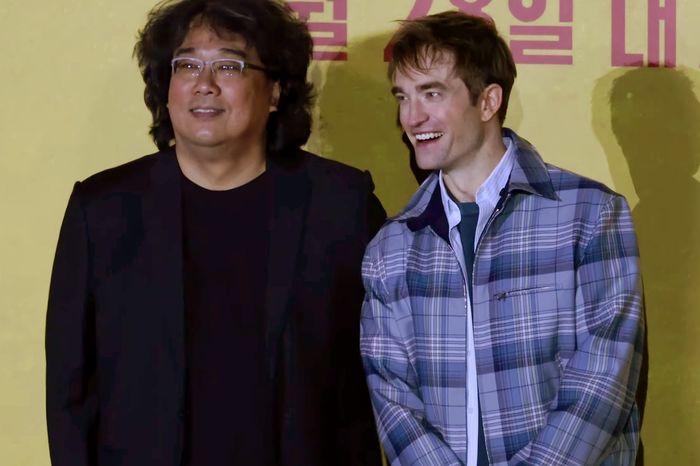Adolescence: understanding the manosphere
Seun Ige explores why Netflix’s incel thriller is exerting such a powerful pull on the public consciousness

When I first watched The Matrix as a teenager, I found the concept of “taking the red pill” fascinating. It meant seeing the world as it really was, breaking free from the illusion that it had taught us. Then I watched Adolescence, and suddenly the phrase no longer felt cool.
“Jamie is not just a boy who made one singular and monstrous choice”
It has taken on a new meaning beyond waking up to reality, becoming shorthand for the radicalisation of young men online – a pipeline that feeds them a diet of misogyny, resentment, and results in a warped sense of identity. It has been creeping into mainstream culture for years, but Adolescence makes it impossible to ignore. The four part limited series, shown on Netflix, follows Jamie Miller, a 13-year-old accused of murdering his classmate, Katie Leonard. I find it chilling just how ordinary Jamie’s life appears; his father is present but emotionally distant, and his mother is loving but often overshadowed. Their home, filled with the very real tensions of family life – a life not so distant from the lives that many working class families are accustomed to. And yet, by the time the show begins, Jamie had done something unimaginable.
A lot of crime dramas I have watched try to make sense of tragedies by filling in the gaps. However, Adolescence denies us this comfort. We do not see Katie’s life beyond the headlines, and there are no flashbacks of her life that reveal who she was outside the context of her murder. Instead, the story stays with Jamie, forcing us to sit uncomfortably with a boy who has been shaped by something unseen. For me, the show’s most powerful moment comes in Episode Three, when Jamie sits down for a session with a psychologist. He is desperate to prove, to her and to himself, that he is not a monster. He insists that he could have touched Katie (in a sexual manner) but didn’t. This, in his mind, makes him “better than other boys”; he thinks of himself as good due to lines he had not crossed, yet in the end, he stepped into something far more dangerous.
As the session continues, his demeanour shifts. He towers over the psychologist in a rage, his physical dominance an unspoken threat. Then, just as suddenly, he becomes small again, repeatedly asking her, “Do you like me?” This moment captures something essential about Jamie, and the sort of ideology that shaped him. Patriarchal conditioning tells him that he is supposed to have power over women, but simultaneously, self hatred tells Jamie that he does not deserve positive regard from women. His sense of self was built on a contradiction of dominance and insecurity, and in that confusion, he reached for control in the worst way possible – creating a disturbing product. What makes this scene even more compelling is Jamie’s attempt at self awareness. He tries to preempt the psychologist, calling out her attempts to probe into his father’s views of women. He wants to stay in control. But in the end, he gives up his game, admitting, in his own roundabout way, that he did it.
“Misogyny is not just an ideology, but a product”
This (as well as at other points in the show) is where Adolescence reveals its brilliance. Jamie is not just a boy who made one singular and monstrous choice. He is a boy whose understanding of masculinity has been formed by a system that teaches him that his worth comes from control, and that women’s opinions of him dictate his value. The “manosphere” is a term referencing the online network that validates the emotions of men, but has often served as a catalyst for misogynistic and anti-feminist rhetoric. This space was once confined to angry forum chats between incels who seemed far removed from ‘normal boys’. Now, it has been ingrained into society, becoming a multi-million pound industry and being rebranded as self improvement. Misogyny is not just an ideology, but a product.
Every time a controversial figure is trending, every time a misogynistic clip goes viral, someone is profiting. The more extreme the rhetoric, the more engagement is generated. The more engagement it generates, the harder it becomes to escape. Jamie did not need to go looking for this world - it was designed to find him.
Want to share your thoughts on this article? Send us a letter to letters@varsity.co.uk or by using this form
 News / Uni Scout and Guide Club affirms trans inclusion 12 December 2025
News / Uni Scout and Guide Club affirms trans inclusion 12 December 2025 News / Pembroke to convert listed office building into accom9 December 2025
News / Pembroke to convert listed office building into accom9 December 2025 News / Cambridge Vet School gets lifeline year to stay accredited28 November 2025
News / Cambridge Vet School gets lifeline year to stay accredited28 November 2025 Features / Searching for community in queer Cambridge10 December 2025
Features / Searching for community in queer Cambridge10 December 2025 News / Uni redundancy consultation ‘falls short of legal duties’, unions say6 December 2025
News / Uni redundancy consultation ‘falls short of legal duties’, unions say6 December 2025









